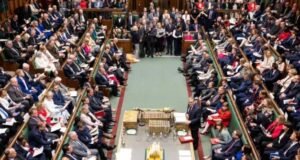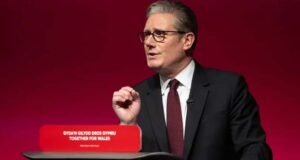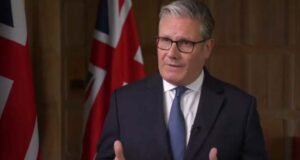 Nicola Sturgeon has dismissed a previous IFS projection as irrelevant.
Nicola Sturgeon has dismissed a previous IFS projection as irrelevant.
The Scottish National party’s flagship financial policy of full fiscal autonomy could lead to a shortfall of nearly £9bn in Scotland’s finances by 2020, according to the latest projections from the Institute of Fiscal Studies – a gap that would only be closed if growth were to double that predicted for the UK as a whole.
The IFS published its report on Tuesday after the SNP leader, Nicola Sturgeon, dismissed as irrelevant the institute’s previous projection of a £7.6bn shortfall for 2015-16 under the policy, which would require Scotland to fully fund spending through its own tax revenues and borrowing.
The figure prompted the Scottish Labour leader, Jim Murphy, to accuse Sturgeon of planning for a “black hole” in the country’s finances.
David Phillips, the senior IFS research economist who updated the projections, said the aim was to show how, while the original figure had only applied to one year, it was not misleadingly pessimistic. “The gap doesn’t shrink, it grows,” he said.
The SNP manifesto, launched on Tuesday, appeared to play down this previously flagship policy, suggesting that a gradual transition would be preferable. But Phillips argues in his observation note that “delaying a move to full responsibility for a few years would not, on its own, deal with the fiscal gap”.
“The gap between Scotland’s deficit and that of the UK as a whole would, if anything, grow somewhat larger in the years ahead, reaching £9.7bn in 2019–20 (equivalent to £8.9bn in today’s prices). The figure for 2015–16 therefore does not seem misleadingly pessimistic given current revenue and spending forecasts.”
The projections are calculated on the basis that Scotland’s share of UK public spending remains at 9.2%, Scotland’s share of the UK’s oil and gas revenues stays at 83.8%, and Scotland’s onshore revenue per person remains at 97% of the UK average throughout the period – in each case the same relative level as in 2013–14, as estimated in the Scottish government’s GERS publication. Fiscal AffairsScotland released similar projections last month.
The observation note also suggests that Scottish revenues per person would need to grow by more than twice as much as forecast for the UK as a whole – 4.5% in real terms per year – by 2020 in order to offset the gap.
Scottish Labour’s deputy leader, Kezia Dugdale, said the latest projections were proof of her party’s argument that the SNP manifesto “signed up to massive spending cuts that would make even the Tories blush”.
She said: “The SNP says we could delay implementing its own plan and that would make things better. The IFS say this isn’t true and would only make things worse. The SNP says we could grow our way out of the extra austerity caused by full fiscal responsibility. The IFS say we’d need heroic levels of growth for this to be even vaguely true.”
The SNP MP Kenneth Gibson said the figures, which also indicate that Scotland’s deficit will almost halve by 2020, underlined that the country has robust finances. He said: “The Westminster parties are doing themselves no good by constantly talking down Scotland financial abilities.”
He added that Labour looked particularly foolish referring to the IFS, which had criticised its manifesto for leaving the public none the wiser as to what they would be voting for.
Gibson said: “As implementation of the 2009 Calman commission proposals and the Scotland Act 2012 have demonstrated, the transition to full fiscal responsibility – and agreement of the detailed fiscal framework that would [be] required to underpin it – would take several years to complete, even if the other parties supported it.
“That is why we want early devolution of priority areas that have the biggest impact in boosting jobs, growth and tax revenues. As the IFS acknowledges, these figures are before the end of the austerity that we want to see in order to grow the economy faster.”
 Weekly Bangla Mirror | Bangla Mirror, Bangladeshi news in UK, bangla mirror news
Weekly Bangla Mirror | Bangla Mirror, Bangladeshi news in UK, bangla mirror news







